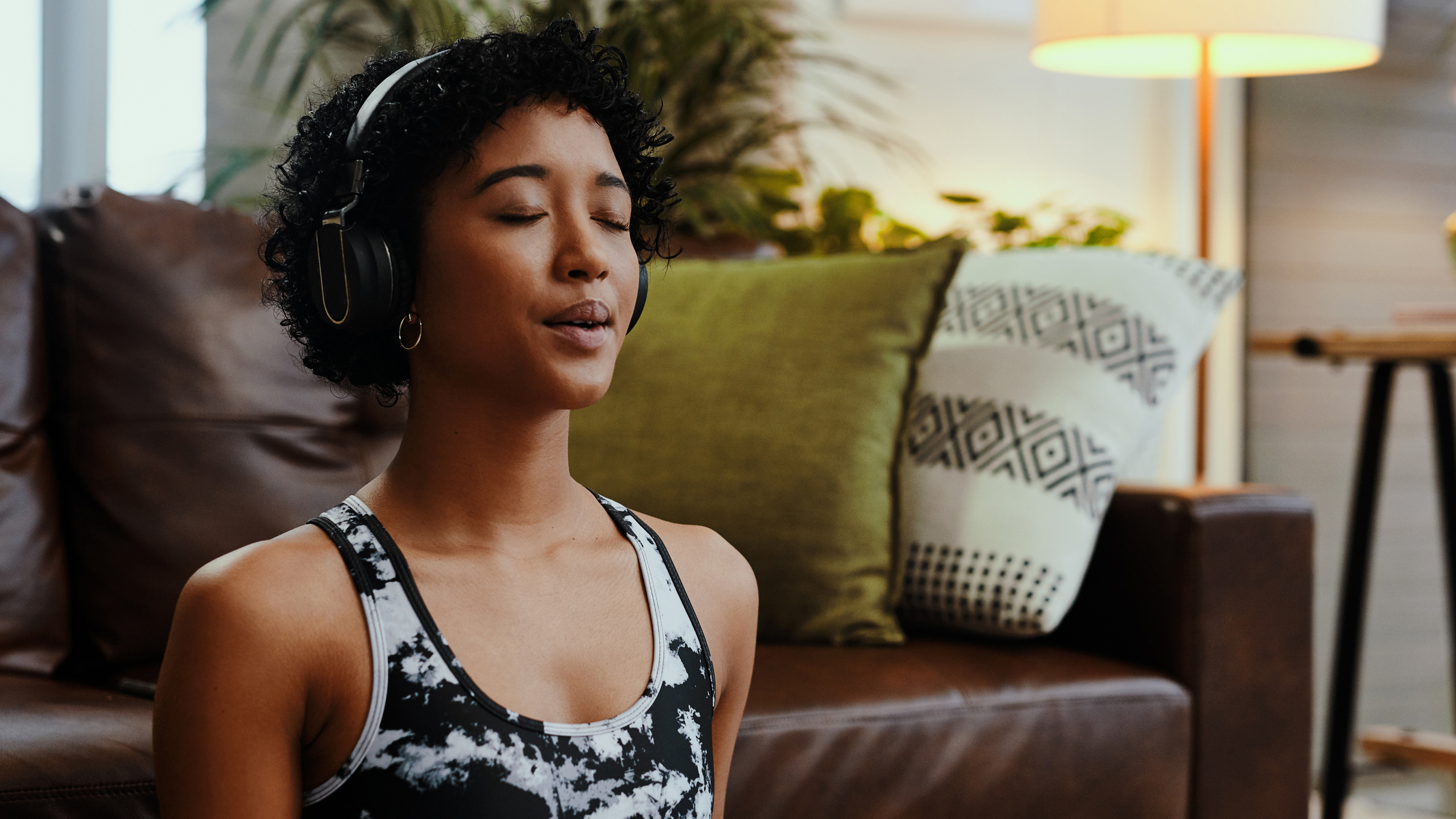A one-minute breathing exercise to make you less stressed (and how it works)
Breathing exercises help you with sustained attention at work, lowering your stress hormones and helping you feel more relaxed


Start your week with achievable workout ideas, health tips and wellbeing advice in your inbox.
You are now subscribed
Your newsletter sign-up was successful
You don't have to be a big believer in chakras or spirituality to get benefits from breathing exercises. With breathing exercises, you can lower your stress levels by decreasing your production of the stress hormone cortisol, alleviating anxiety, depression and potentially weight gain. Along with exercises (for example, our best exercises for weight loss) and good nutrition, taking a few minutes to relax and do a breathing exercise can be one of the most important tools in your fitness arsenal.
Breath control exercises also enhance "cerebral and psychological flexibility" according to one study in the journal Frontiers in Human Neuroscience, activating responses in your central nervous system. It can help with increasing concentration and sustained attention, and can help increase your "comfort relaxation, pleasantness, vigor and alertness".
But how does it all work? Unlike many fanciful claims of meditation, the Frontiers study, conducted by researchers from Italy, the US and Brazil, sought to study the scientific merits of slow breathing exercises – deliberately breathing under 10 breaths a minute.
It was found breathing at this pace affects the "cortical and subcortical structures" of the brain, the largest part which processes information. Fifteen minutes of breathing exercises resulted in changes to these areas of the brain, including "reduced symptoms of arousal, anxiety, depression, anger, and confusion".

It's possible this is a primal thing. When our ancestors were running away or looking out for a predator, or perhaps on the prowl for a mate, the physiological processes running through our body made us breath faster. Breathing slowly could indicate to our brains that we're probably resting, and there's none of these dangerous or exciting external stimuli nearby. Therefore, we calm down.
Breathing exercises for beginners
At the early stages, breathing exercises are very similar to meditation: you close your eyes for a moment and direct your attention to "follow your breathing". You might be asked to count your breaths up to a certain number (ten is very common) or focus on a particular area such as your nose and mouth.
You can, of course, go further, lighting a candle or using one of the best diffuser for essential oils, or piping a guided meditation through your workout earbuds. However, the basics will never change, and it's absolutely free. Here's a good way of getting started, courtesy of mindfulness app headspace:
Start your week with achievable workout ideas, health tips and wellbeing advice in your inbox.
- Sit down. You can close your eyes if you'd like to.
- Take a deep breath in, moving air in through the nose and out through the mouth.
- Concentrate on the feeling of fresh air, and your lungs expanding.
- As you breath out, think about your muscles softening.
- Continue breathing slowly in and out.
- After around four or five breaths, pause.
- Gently open your eyes again.
Watch the beginner's one-minute meditation here:
Matt Evans is an experienced health and fitness journalist and is currently Fitness and Wellbeing Editor at TechRadar, covering all things exercise and nutrition on Fit&Well's tech-focused sister site. Matt originally discovered exercise through martial arts: he holds a black belt in Karate and remains a keen runner, gym-goer, and infrequent yogi. His top fitness tip? Stretch.
